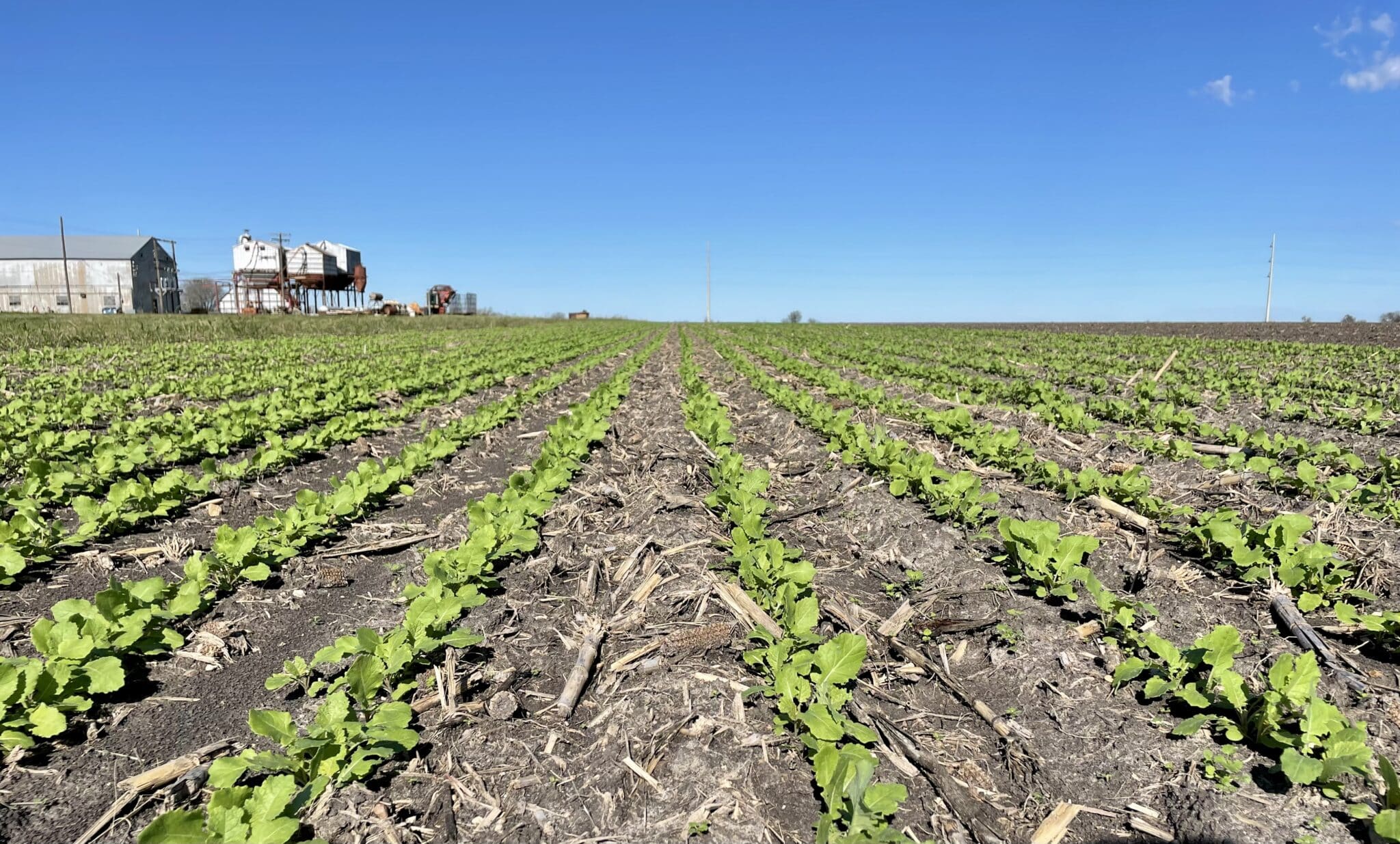With planting completed in November, between main crop rotations, December is the time Nuseed Carinata growers start preparing for in-season management of the non-food oilseed cover crop. Nuseed Carinata is a new cover crop grown using sustainable farming practices and harvested for low carbon renewable oil feedstock.
Growers reap both the cover crop soil benefits plus additional contract income from producing the cover crop as a traceable feedstock for hard to decarbonize sectors to help replace fossil fuels or petrochemicals and meet carbon reduction targets and reporting requirements. A Nuseed Carinata Contract also rewards growers for adopting specific sustainable farming practices that maximize greenhouse gas savings including low tillage, low fertilizer application and no increased or indirect land use change.
“Many Nuseed Carinata contract growers are already planning to plant cover crops to improve soil, have adopted sustainable practices and are keeping detailed field records,” says Nuseed’s Product Development Manager, North America Alison Pokrzywinski. “A Nuseed Carinata Contract is a great opportunity for growers to improve their soil and their bottom line between main crops using existing land, equipment and know-how.”
The resilience bred into the Nuseed Carinata hybrids make the crop relatively low maintenance, below are a few in-season management points Pokrzywinski shares with contract growers.
Weed Management
- Fields with wild radish concerns should be avoided
- Broadleaves such as henbit and morning glory should be controlled prior to planting
- Carinata typically outgrows winter weeds if the area surrounding the emerging crop is clean
Disease Management
Sclerotinia Stem Rot (white mold)
- Causes premature ripening, shrunken seeds and plant death
- Many other plant species are also susceptible to white mold (ie. peanuts, soybeans, etc.)
- Disease favors cool, wet conditions, especially prior to flowering
- Apply fungicide at beginning of flowering for disease prevention
Alternaria Black Spot
- Can affect at any stage of development
- Infection appears as black spots on leaves, stems or pods
- Grain may be affected if harvest is delayed and disease is present
- Fungicide application at beginning of flowering is suggested
Insect Management
Diamondback Moth
- Main insect of concern
- May cause delayed maturity, uneven crop development and reduced yields due to larvae feeding
- Scout in March and April
- Foliar spray may be necessary
Other minor insects include aphids, flea beetles, cabbage seedpod weevil, bertha armyworm, cutworms
For full production guidelines download the Nuseed Carinata Production Manual <<and link to resources when available>>
